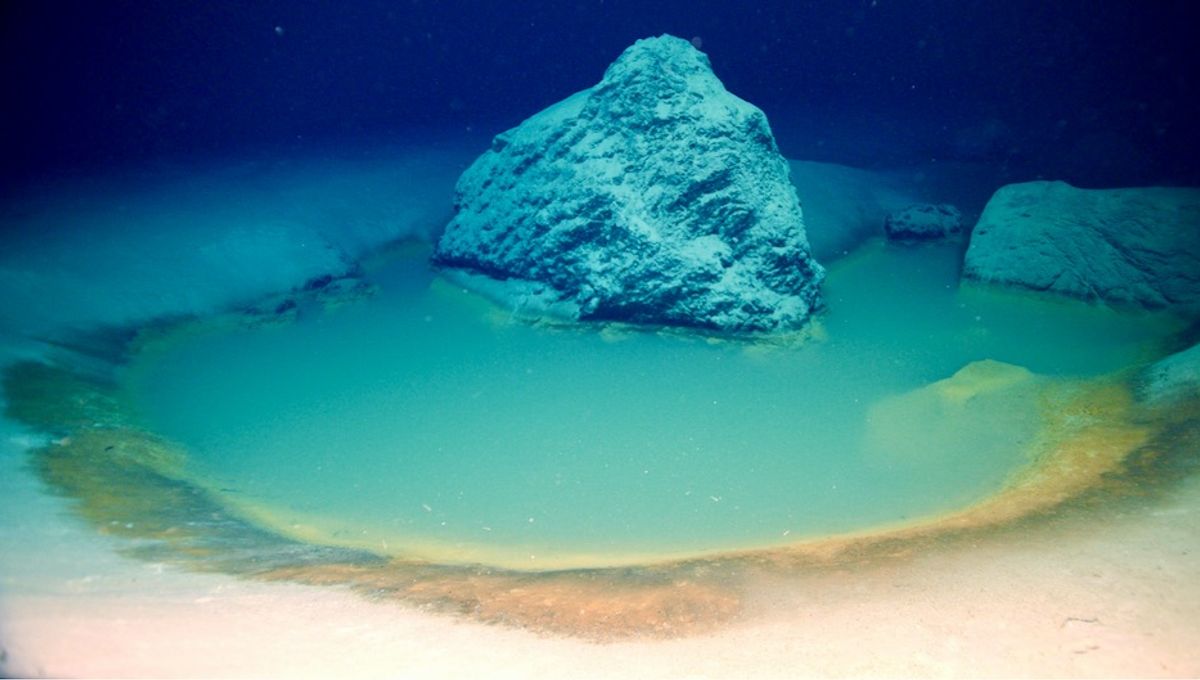
A handsome fictional mathematician once said that life, uh, finds a way – and he’s not wrong. Earth is teeming with organisms that manage to survive in the most extreme environments, including in some rare deep-sea brine pools in the Red Sea, which very nearly went undiscovered.
ADVERTISEMENT GO AD FREE
The brine pools in question are in the Gulf of Aqaba, a large region in the northeast of the Red Sea that lies between the Arabian and Sinai peninsulas. There, in 2020, marine geoscientist Sam Purkis and his team were part of an OceanXplorer research cruise that was the first to discover brine pools in the gulf.
“We were very lucky,” said Purkis in a statement made in 2022, when a study detailing the team’s findings was published in Communications Earth & Environment. “The discovery came in the last five minutes of the ten-hour ROV dive that we could dedicate to this project.”
What they found would be a hostile environment to most; the complex of pools found 1,770 meters (5,807 feet) below the surface, are incredibly salty and completely devoid of oxygen, conditions that don’t exactly seem conducive to life.
And yet, the pools were found to be brimming with exactly that.
“At this great depth, there is ordinarily not much life on the seabed,” Purkis told Live Science. “However, the brine pools are a rich oasis of life. Thick carpets of microbes support a diverse suite of animals.”
That includes creatures like eels, flatfish, and houndsharks. Purkis and colleagues write in their study that “[t]hese predators appeared to deliberately cruise the brine surface”, waiting to snack on the unfortunate souls that accidentally end up in the pools and are immediately stunned or killed by the anoxic waters. Only extremophiles make it here.
ADVERTISEMENT GO AD FREE
The pools might also hold clues to the region’s meteorological and geological history, and not the kind you can find in the archives – this could be on “millennial timescales”, the researchers write.
Analysis of sedimentary rock samples extracted from the pools revealed “an unbroken record of past rainfall in the region, stretching back more than 1,000 years, plus records of earthquakes and tsunami,” Purkis told Live Science.
The researcher believes that extreme environments like the brine pools could help us to understand what might lie beyond Earth too.
“Until we understand the limits of life on Earth, it will be difficult to determine if alien planets can host any living beings,” said Purkis in the statement. “Our discovery of a rich community of microbes that survive in extreme environments can help trace the limits of life on Earth and can be applied to the search for life elsewhere in our solar system and beyond.”
Source Link: Rare Red Sea Brine Pools Are One Of The Most Extreme Environments On Earth